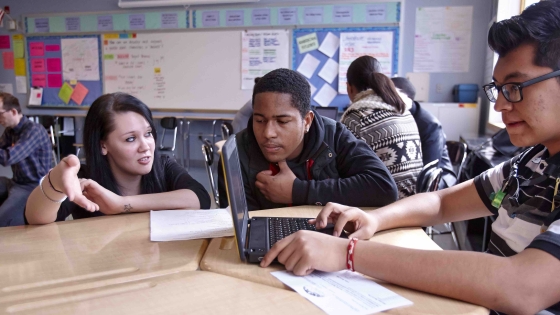Measuring Equitable CS Learning Environments
About CS for All
In school districts and states around the country, momentum for computer science (CS) education has accelerated since President Obama announced the Computer Science for All initiative in 2015. Designed to bring CS to all students in grades K through 12, these initiatives are motivated by the belief that digital literacy and computational thinking skills are necessary to function in today’s technology-driven world. The CS for All movement has also been fueled by the growing number of jobs that require computing skills. Issues of equity and social justice have been at the fore of the CS education movement, especially given the job prospects and earning potential for those with CS skills. Moreover, CS education is seen as a way to empower marginalized students and communities to participate as creators—not just consumers—in the digital world.
While there has been some progress in improving access and participation in CS for underrepresented students, CS for All movements increasingly recognize that expanding access and participation is not sufficient, on its own, to address deep-seated structural racism that produces gaps in CS opportunities and outcomes. Thus, districts and educators are working to move beyond numerical representation of equity, which focuses only on whether students achieve parity in terms of access and participation, toward a broader vision of equity and social justice in CS education. This strategic shift centers on developing a range of CR-SE practices that aim to affirm students’ cultural identities, elevate historically marginalized voices, empower students as agents of social change, and support their engagement, learning, growth, and achievement in CS.
About the Study
This study will develop and test measures of culturally responsive-sustaining education (CR-SE) in computer science—providing vital tools and evidence to inform the growing CS education field. The project will use an Evidence-Centered Design approach to engage the communities most directly impacted by the work, including parents, students, and educators. Together with these stakeholders and our partners at the New York City Department of Education, the Research Alliance will: 1) identify the core components of CR-SE in CS instruction; 2) design and pilot test a classroom observation tool and teacher and student surveys that measure enactment of CR-SE in CS instruction, and 3) explore whether implementation of CR-SE is associated with improved student outcomes. The instruments developed and validated through this project will be shared broadly to support additional rigorous research on CR-SE in CS,and to help schools and districts assess their own efforts to implement CR-SE.
This project is supported by a grant from the National Science Foundation (Award # 2219389).






